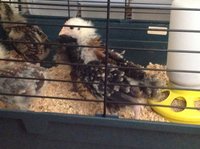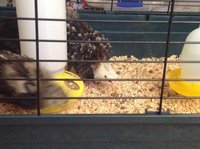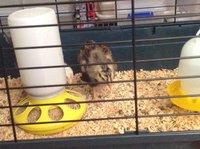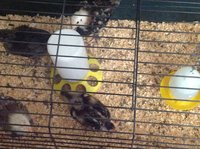At three and a half weeks my babies are doing really well. They are eating well, feathers are well ahead of some I have seen, they are heavy, healthy, squabbling, pushing, shoving, flying, knocking over food and water. So, how to keep up with the good start I have given them?
I have them on medicated chick starter and would like to move them to a fabulous chick starter I am using for my guinea fowl keets. It is made locally from local organic ingredients and bio char. My guineas are doing so well on it. But I would like to know if I need to continue with cocci prevention?
I also want to start supplementing them with vitamins and was wondering about shell grit for calcium. Other things include, worming....when and with what?
Finally, housing...it is summer here, and very, very hot. So far my babies are in a cage in my store room since it is cool in there. They have been on towels since they were born and I am exhausted with keeping it all clean, especially the past week, when because of their rummaging around nothing stays in place. I have had them on towels over rubber matting and that has worked well. I have removed them everyday and washed everything, so they have been kept clean and no smells, which has made it possible to keep them in. But I can't keep doing it, especially as we are running out of water on the farm, so I want to put them on wood shavings with lemongrass pellets to keep everything fresh. Is that okay?
Next, at what stage will they cope with the heat outside and what is the best interim housing for them until they are big enough to join the main flock?
Sorry for so many questions, but I really want to raise the healthiest chicks I can. This is a photo taken over a week ago they now have most of their feathers.
Attachments
Last edited:








